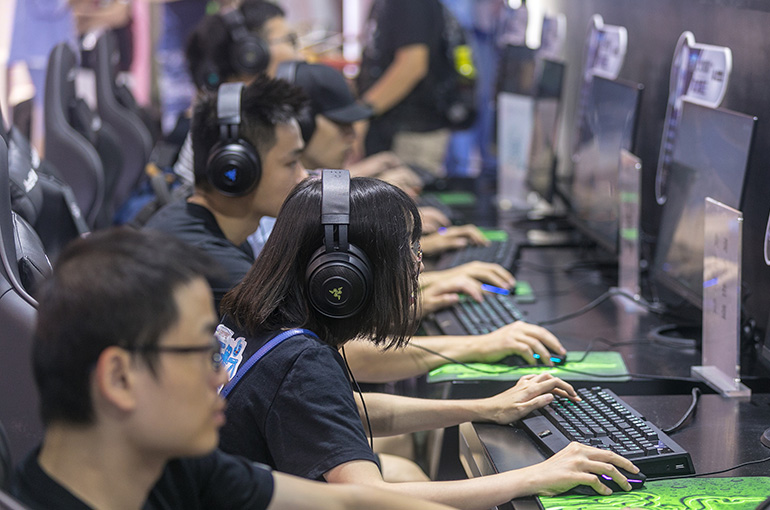 China’s ‘New Social Class’ Swells to 91 Million, Most Are Well Educated, Report Says
China’s ‘New Social Class’ Swells to 91 Million, Most Are Well Educated, Report Says(Yicai Global) May 29 -- Some 91 million people in China are engaged in new occupations, such as livestreaming, takeout deliveries, social networking, e-sports and new media marketing, and more than 60 percent of them have received higher education, according to a recent report.
The New Social Class expanded 26.4 percent in 2021 from 2016, according to the report, which looked at 10 megacities in the Beijing-Tianjin-Hebei region, the Yangtze River Delta region, the Pearl River Delta Region, the middle reaches of the Yangtze River, and the Chengdu-Chongqing region. The study was led by Zhang Haidong from the School of Sociology and Political Science at Shanghai University.
A sociological concept unique to China called the New Social Class has emerged as the social and economic structure becomes more diversified and complex over the past more than 40 years, Li Peilin, a member of the Chinese Academy of Social Sciences’ Presidium of Academic Divisions and a consultant at the Shanghai New Social Class Research Center, said when the report was released last week.
The New Social Class is more highly educated than other social groups. Some 60.2 percent of those polled have college degrees, much higher than the average of 44.5 percent in the megacities. Some 39.3 percent have degrees from technical colleges, vocational schools or lower qualifications, and just 0.4 percent had no academic credentials.
Nearly one quarter of residents in megacities are part of the New Social Class, the report said. Hangzhou, the city where e-commerce giant Alibaba Group Holdings is based, has the biggest proportion of the 10 metropolises at 33 percent, similar to the number of people working for the government, and Tianjin, near Beijing, has the smallest proportion at 14.2 percent.
In the narrow sense, the New Social Class consists of managerial and technical staff members in private and foreign-funded firms, people working in intermediary and social organizations, freelancers, and people working in new media, said Zhang, who is also executive director of the Shanghai New Social Class Research Center.
There is gender equality in the New Social Class with 46.33 percent being men and 53.67 percent being women. The men are 38 years old on average and women 27. They are the youngest among all social groups in cities and the only group with an average age below 40, the survey showed.
The New Social Class is highly paid, earning an average annual salary of CNY108,900 (USD15,409), much higher than the per capita disposable income of urban residents nationwide of CNY42,400, and on par with white-collar workers who are not in government agencies, state-owned enterprises and public institutions, the report said.
This group is growing rapidly as the economy develops, Li said. New professions in the internet field and the number of people working in these new occupations are skyrocketing. This is creating a bigger middle class, Li said. There is income disparity with some being rich and some earning less but most of them are in middle- to upper-middle-income groups, he added.
And they are young, innovative, open-minded, have global perspectives and distinct personalities, Li said. The internet is fully blended in their lives, and thus they are a very important index based on which to judge future development trends.
The New Social Class has a great impact on social structure, especially in occupation selection, values, ways of life and sociopolitical attitudes. For example, social media influencers with millions of followers are often the focus of public opinion. Better studies are needed to get more accurate knowledge of this group, he added.
Editors: Tang Shihua, Kim Taylor